Video: Whistleblower Shows Reptiles Denied Water and Found Dead by the Dozens at PetSmart Supplier
A whistleblower who worked at Reptiles by Mack—a Xenia, Ohio, breeding factory and supplier to animal trafficker PetSmart and other pet stores—contacted PETA after repeatedly trying to improve the miserable conditions for the thousands of bearded dragons warehoused there in filthy, barren plastic tubs. Despite pleas to management, the eyewitness found that dragons were denied even the most basic necessities—including any water. They were left to suffer from severe injuries and found dead by the dozens.
Not a Drop for Bearded Dragons to Drink
Like most animals, bearded dragons need to drink water to stay healthy—Mack even explains on its website that dragons should be given a bowl of water for drinking. But in the warehouse where the company confines thousands of them in row after row of plastic tubs, it denied the thirsty animals water.
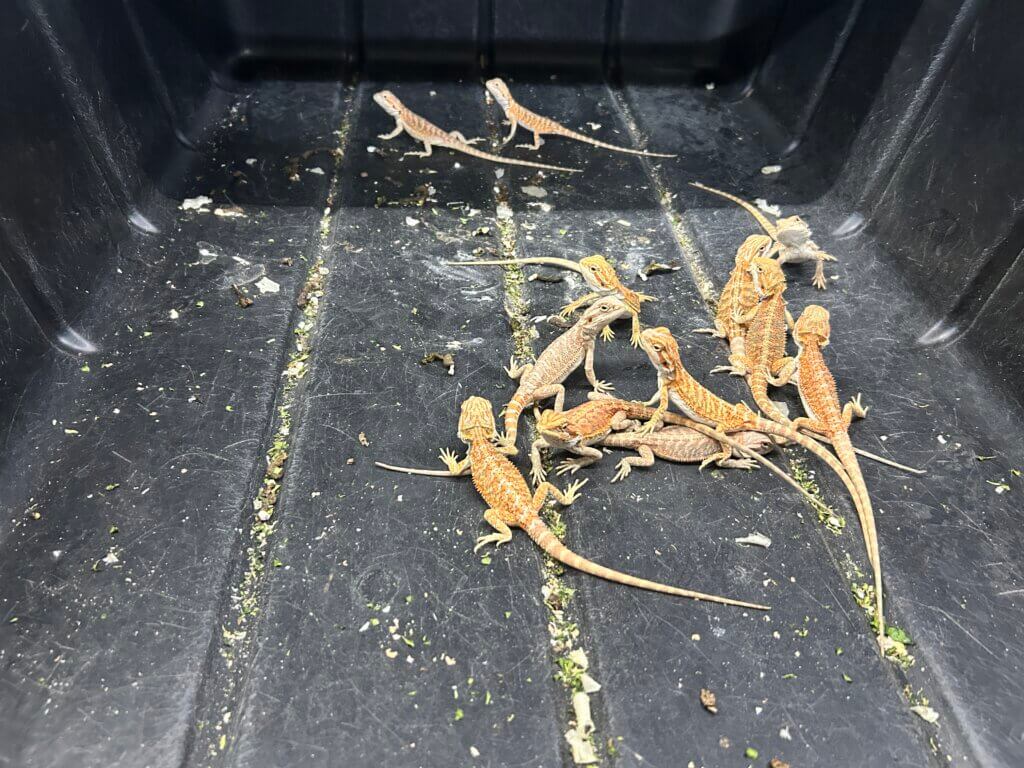
Dehydrated dragons desperately attempted to drink droplets of water left behind after the tubs they were kept in were rinsed and licked their lips for more. When the whistleblower sprayed a mist, the animals ran to the fresh water and drank continuously.
Dr. Ann-Elizabeth Nash—the executive director of the Colorado Reptile Humane Society and an expert on lizard behavior—viewed the whistleblower’s footage and wrote, “Bearded Dragons will drink water if they are thirsty—and the greater the thirst, the more likely it is they will drink any water they find available. … The intensity of the drinking response in [the video] suggests these animals are very thirsty and likely dehydrated.”
‘Every Single Dragon’ Had a Virus
Many bearded dragons at Mack shook and twitched violently, unable to control their movements. A supervisor attributed the symptoms to an adenovirus—a highly contagious virus spread by poor sanitation, as found at Mack—which he said that “every single” dragon at the facility had and which can lead to liver and kidney disease, encephalitis, and other painful conditions.
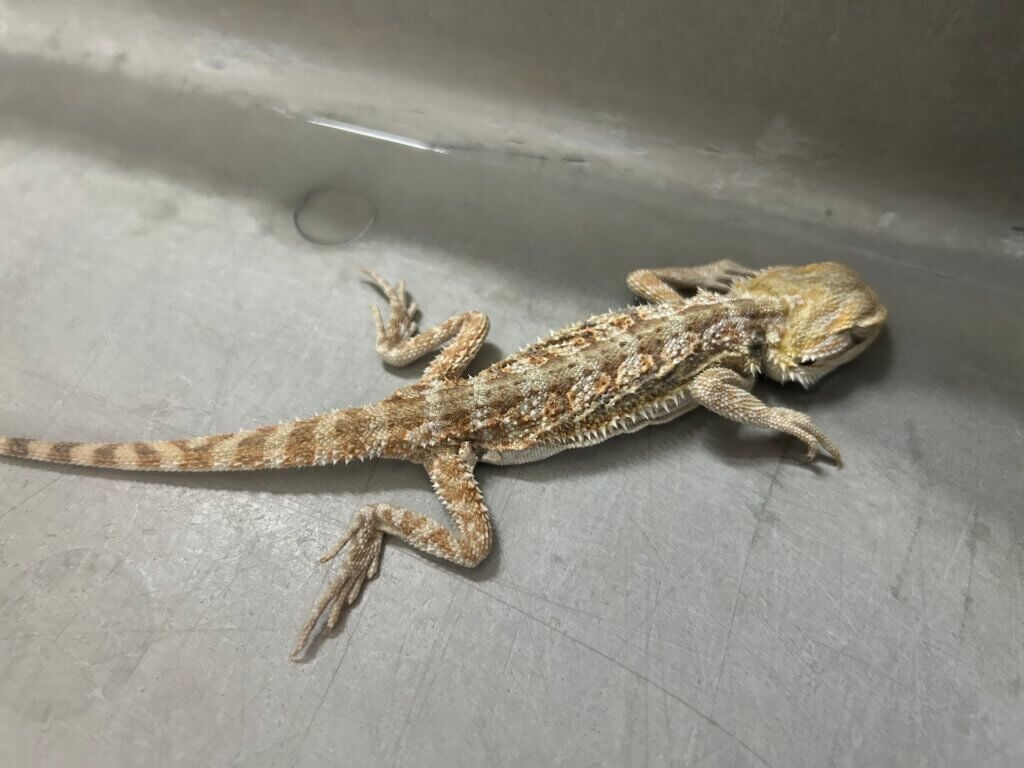
According to the whistleblower, supervisors put down dragons with obvious signs of the disease, but Mack took no measures to contain the virus or quarantine animals housed with those who’d exhibited symptoms. The company potentially shipped sick dragons or asymptomatic carriers out to pet stores nationwide to be purchased by customers unprepared to care for a critically ill animal.
The whistleblower often found bearded dragons who were lethargic, emaciated, or suffering from other conditions, including what was apparently yellow fungus disease—which causes skin ulcerations and is potentially fatal—and “mouth rot,” a bacterial infection that can invade the jaw bones.
How Do Bearded Dragons Die? That’s a ‘Little PETA Question’
Bearded dragons, including babies, were routinely found dead. Some dragons’ remains were completely desiccated—indicating that they’d been dead for some time—while worms ate holes in others. The whistleblower alone found nearly 70 dragons dead in less than eight weeks. Their remains were collected in dog feces bags.
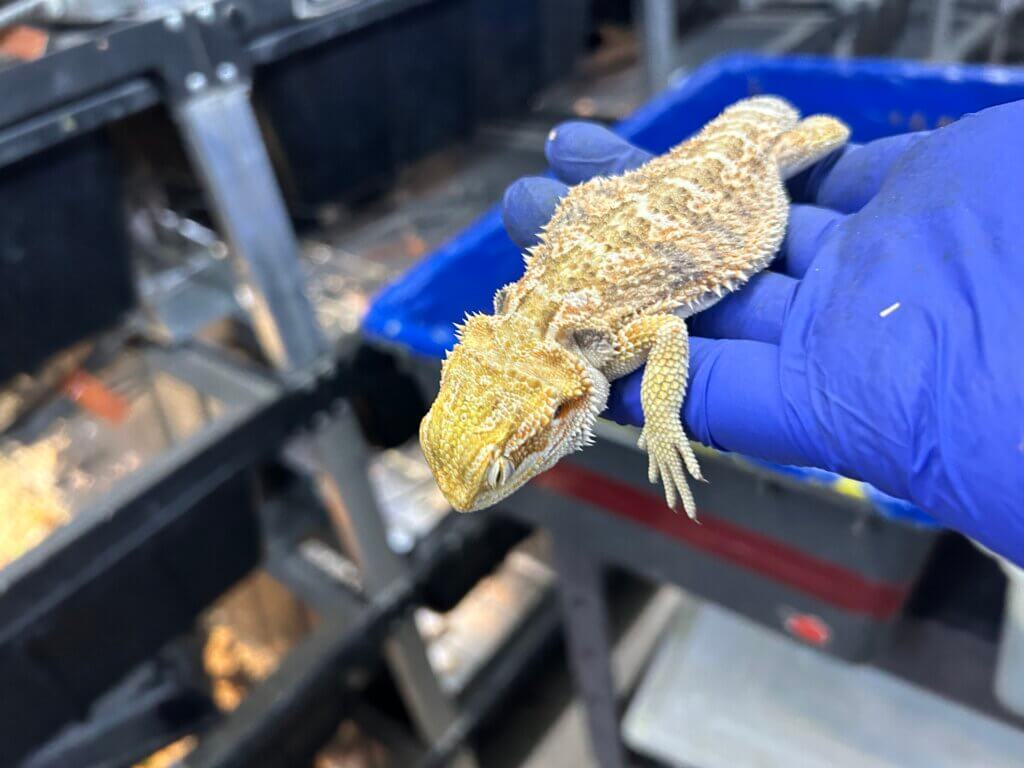
Supervisors put down at least 420 dragons during that same time frame. When the whistleblower asked how the animals were killed, a supervisor said that was a “little PETA question” but went on to explain that the animals were gassed using carbon dioxide for up to 10 minutes.
No Care for Necrotic Wounds, Injured Limbs
As the footage shows, Mack kept dragons in barren plastic tubs where they couldn’t burrow, hide, or climb—all basic types of behavior that are important to their health and well-being. The animals tried frantically to jump out of the enclosures, and some even hung by their toes from the wire lids.
In their natural Australian habitats, bearded dragons love to climb rocks and bushes, bask in the sun, cool off underground, and forage. They’re solitary animals who tend to protect their territory from other dragons. In the U.S., though, they are commonly shipped and sold like inanimate merchandise to people who often buy them on impulse. But unable to hide or escape the crowded conditions at Mack, stressed dragons often fought, resulting in severe wounds to their tails and legs, including missing feet.
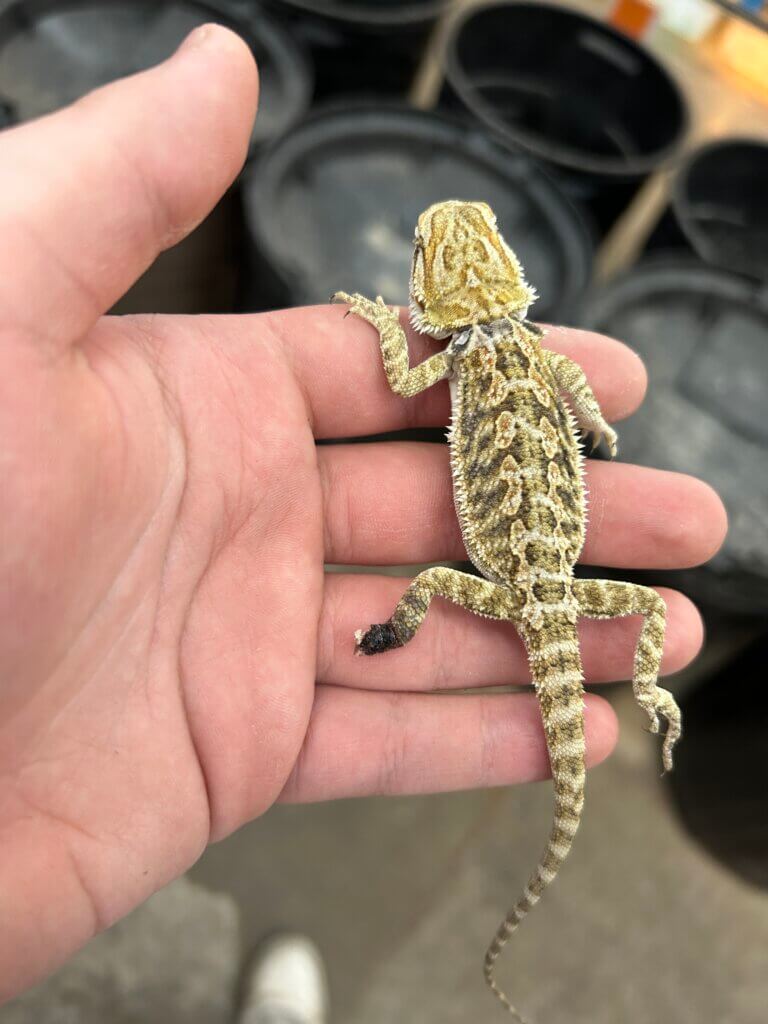
Instead of seeking immediate care for the injured animals, Mack management instructed the whistleblower to leave them in bins until the facility’s veterinarian might examine them during reported weekly visits. The veterinarian often wrote only “time” as the recommended “treatment” for injuries, according to the eyewitness, including in the case of a dragon with a necrotic leg, which he said would eventually “fall off.”
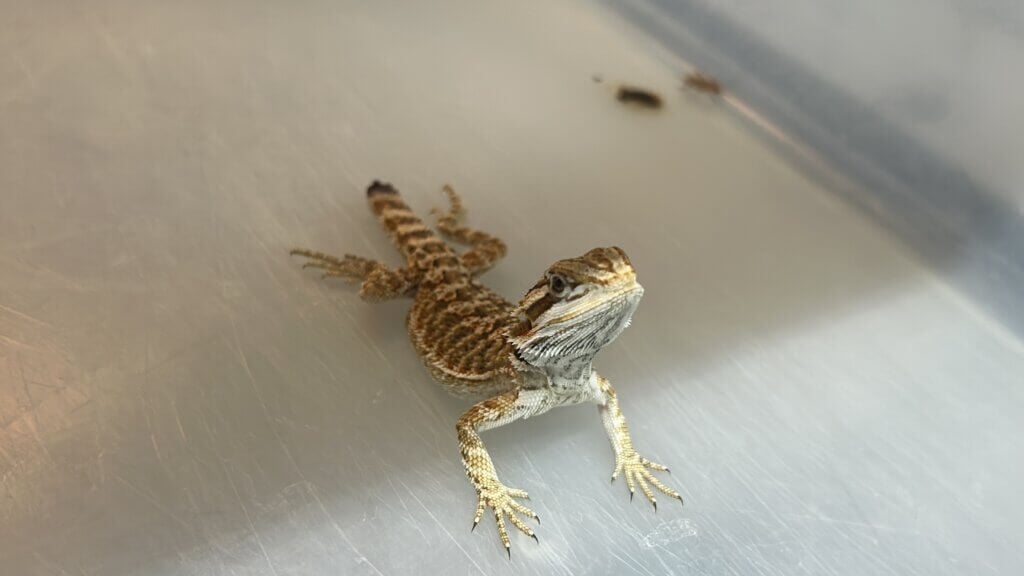
A supervisor was recorded telling staff to leave one dragon to suffer from a severely injured arm that hung limp at her side, claiming the veterinarian could do nothing for her. He said that the maimed animal could still be sold as “imperfect.”
“The conditions evidenced in the videos and photographs are appalling—unnecessarily barren habitats; deprived feeding and hydration regimes … and a depraved indifference to animal injury, disease, and the pain and suffering it produces. It is more than possible to improve the conditions of these animals—that they are denied appropriate care and timely medical intervention is unconscionable.” —Dr. Ann-Elizabeth Nash
Filthy Conditions, Forsaken Dragons—Unless PetSmart’s Expected to Visit
According to the insider, employees were forced to work so quickly that they couldn’t check on the health of hundreds or even thousands of animals they were responsible for in a shift. When the whistleblower attempted to be thorough and improve conditions for the animals, he was reprimanded for being off task or working too slowly.
Filthy tubs went uncleaned for up to a week, according to the whistleblower. Hundreds of bulbs were burnt out over dragon enclosures—depriving the animals of crucial ultraviolet B light and heat—but a supervisor would apparently not allow staff the time to change them.
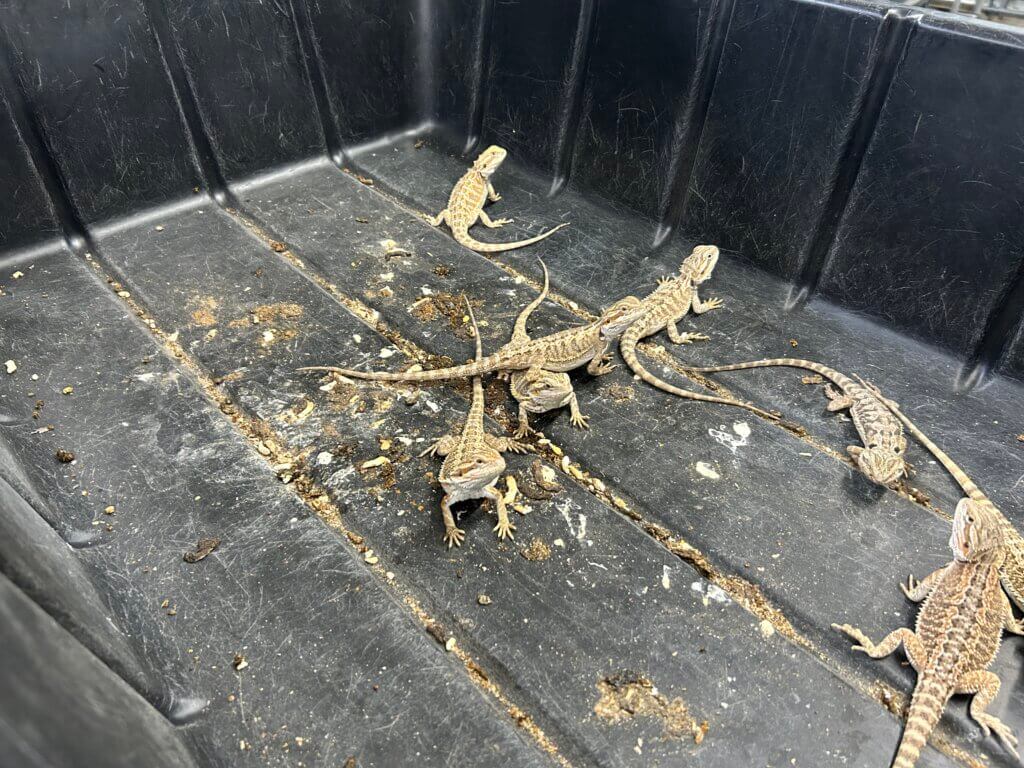
Management reportedly changed its tune when PetSmart and other customers came to town. According to a supervisor, big-box pet stores’ reps give Mack “a week’s notice” before arriving and staff worked late to “deep clean” before PetSmart representatives visited the bearded dragon department—one of the “big deal” animal trafficker’s “main focuses,” according to a senior worker.
Supplier Bred Bearded Dragon Babies and Brought Them In by the Thousands
Thousands of baby dragons were imported from overseas, packed by the dozen in tiny plastic containers. Many were found dead shortly after arrival.
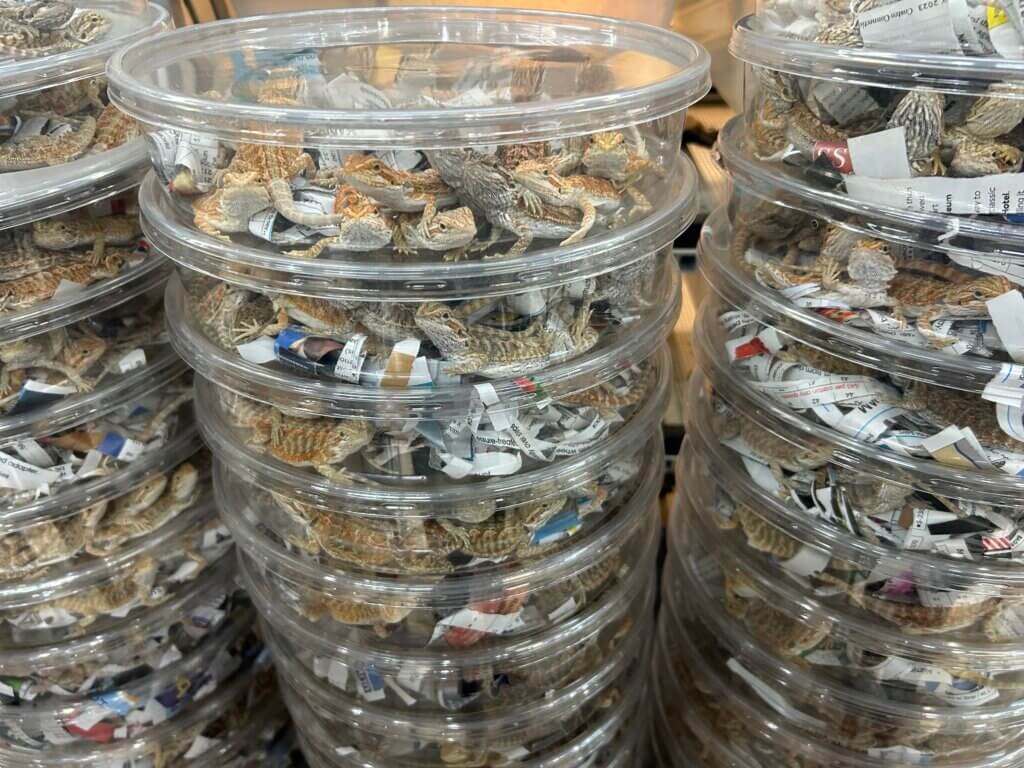
The PetSmart supplier bred other bearded dragons. Over a period of two months, dozens of babies deemed “slow growers” were gassed if they didn’t reach a desired weight by even a fraction of a gram.
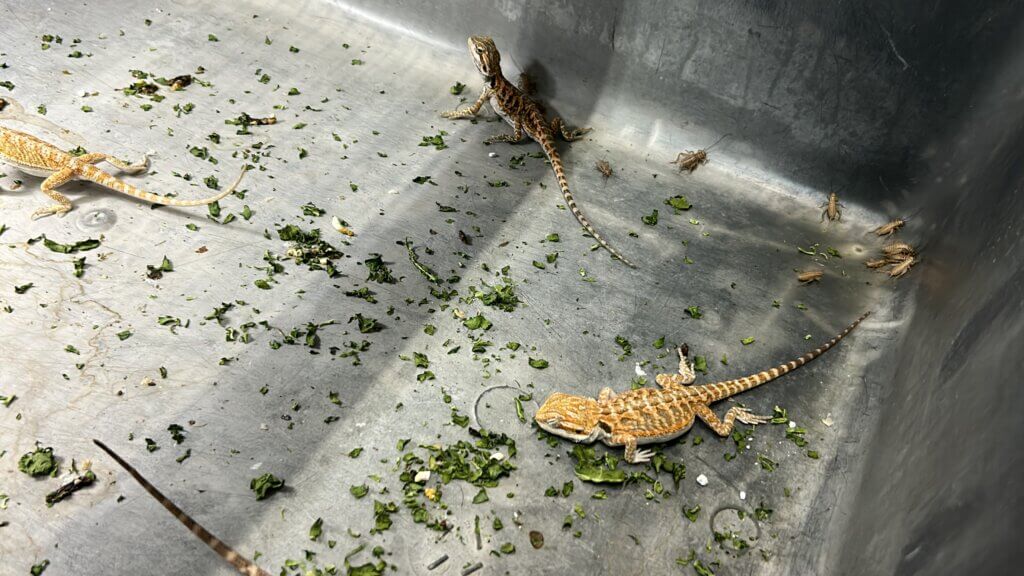
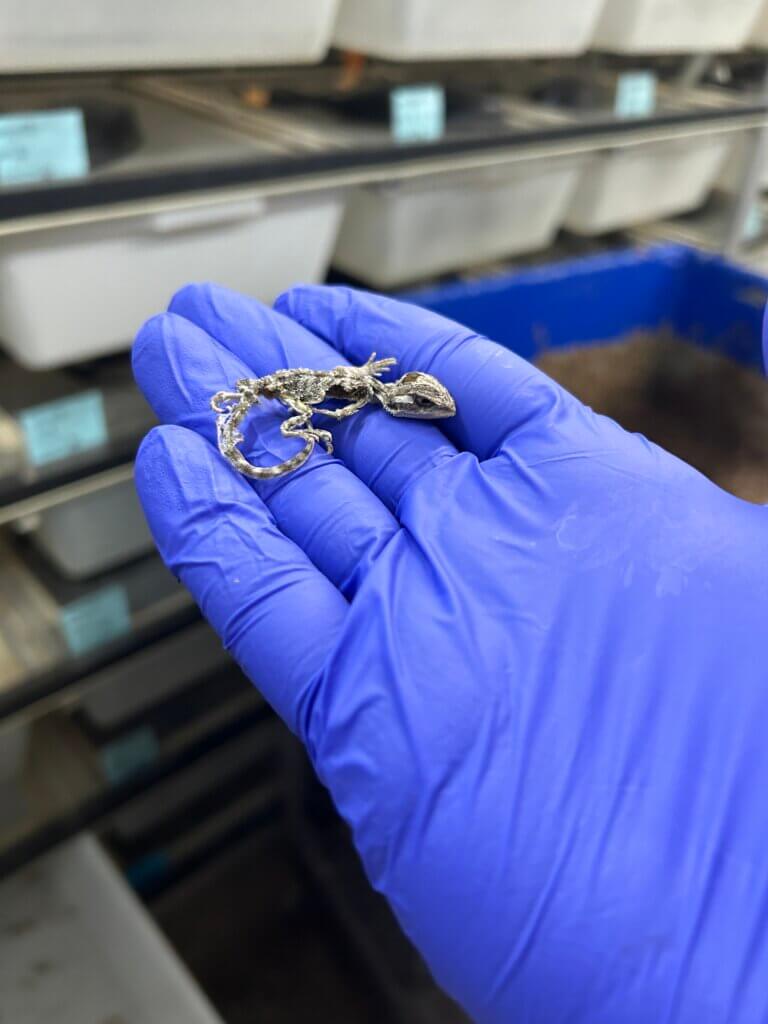
Baby dragons often hatched deformed. Most were put down, but management evidently intended to auction Timothy and Jimothy—dragons conjoined at the spine—to the highest bidder, instead of allowing an employee who cared for the twins to adopt them.
Dangerous zip ties were put around the necks of dragons used for breeding, and the females were left in garbage cans to lay eggs, with no food or water, for up to six days at a time, according to the whistleblower. Some female dragons were confined with males nearly twice their size. A team lead admitted that one small female was “stressed out” but left her in a tub with a much larger male anyway.
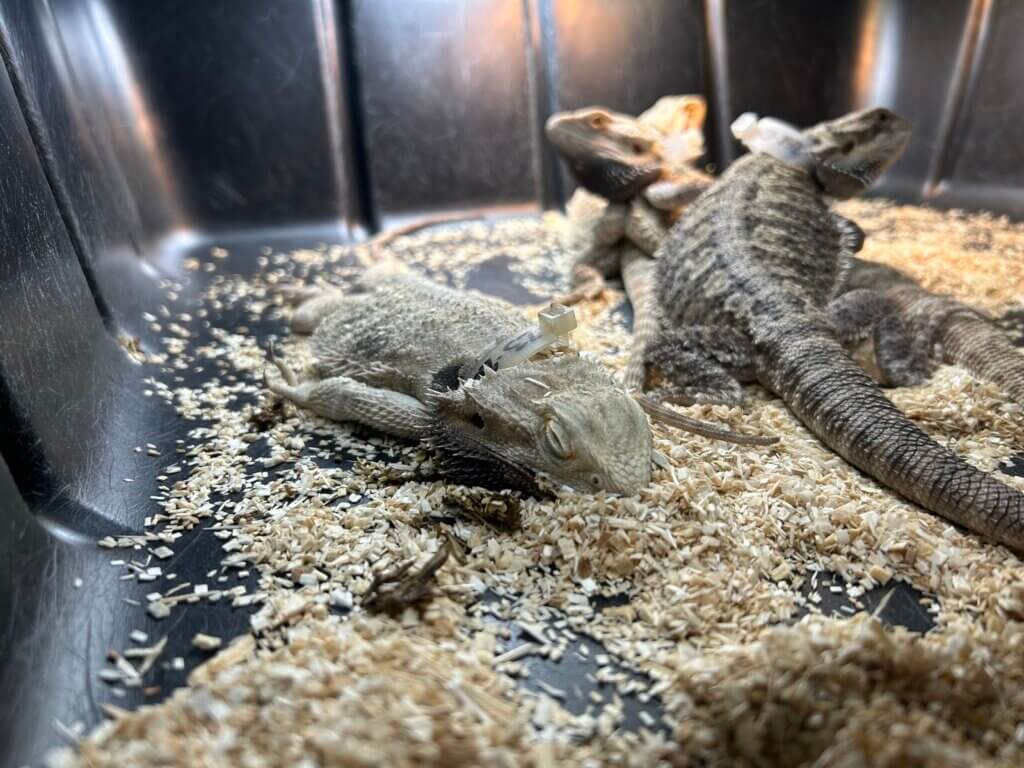
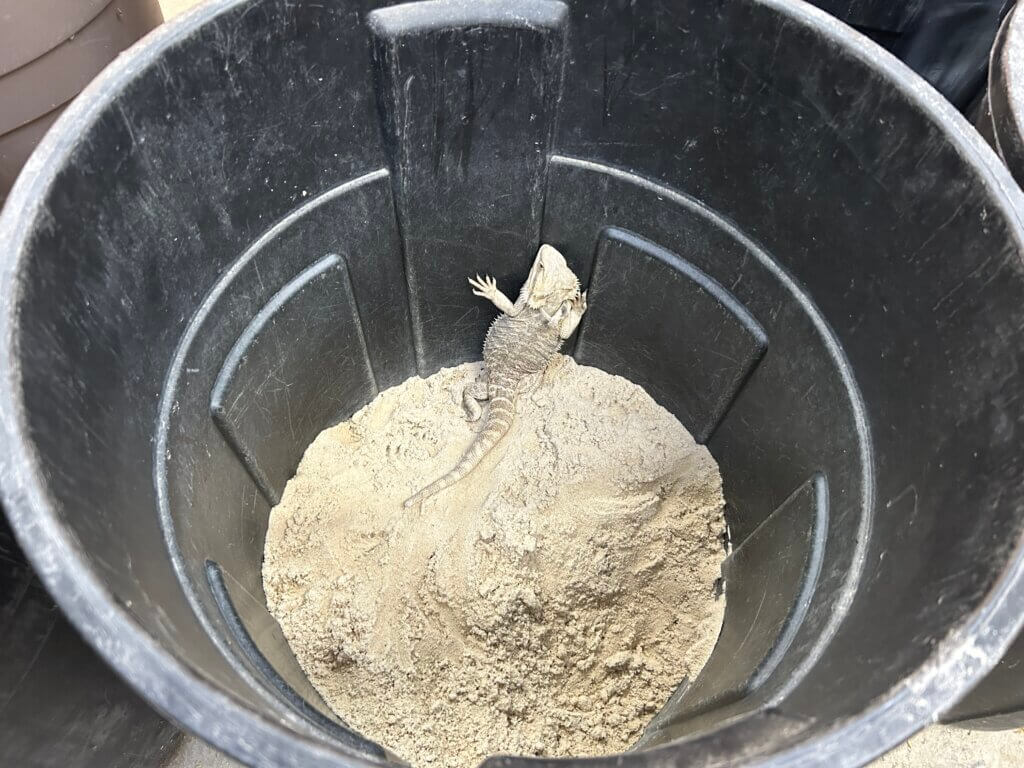
Same Sick Story, Same Big Customer
The suffering that the whistleblower reported at Mack in 2024 is hardly new. PETA investigated the company in 2015 and 2016 and found that tens of thousands of animals—including frogs, turtles, and snakes, in addition to bearded dragons and other lizards—were confined to filthy, cramped plastic tubs and deprived of fresh food, water, heat, ultraviolet light, and veterinary care.
Eight years later, Mack staff called PETA’s investigation footage “the forbidden video”—and PetSmart still buys animals from the company, despite having been alerted to the factory-farm conditions, deprivation, misery, and painful deaths there.
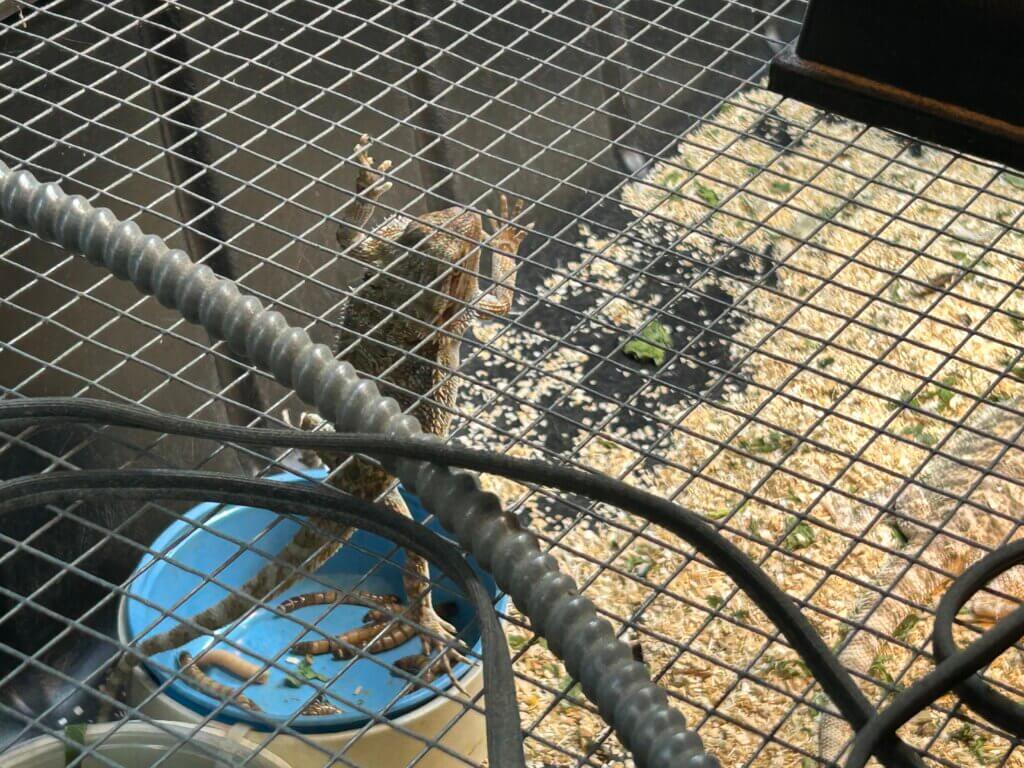
You Can Help Bearded Dragons
This marks the eighth time PETA has exposed an animal dealer with ties to large pet store chains. PetSmart is well aware of the systemic suffering in its supply chain, yet it continues to do business with animal factories like this one and sell animals.
Please join us below in urging PetSmart to stop selling bearded dragons as a first step—and let the animal trafficker know that you won’t shop at its stores until it stops selling all animals.
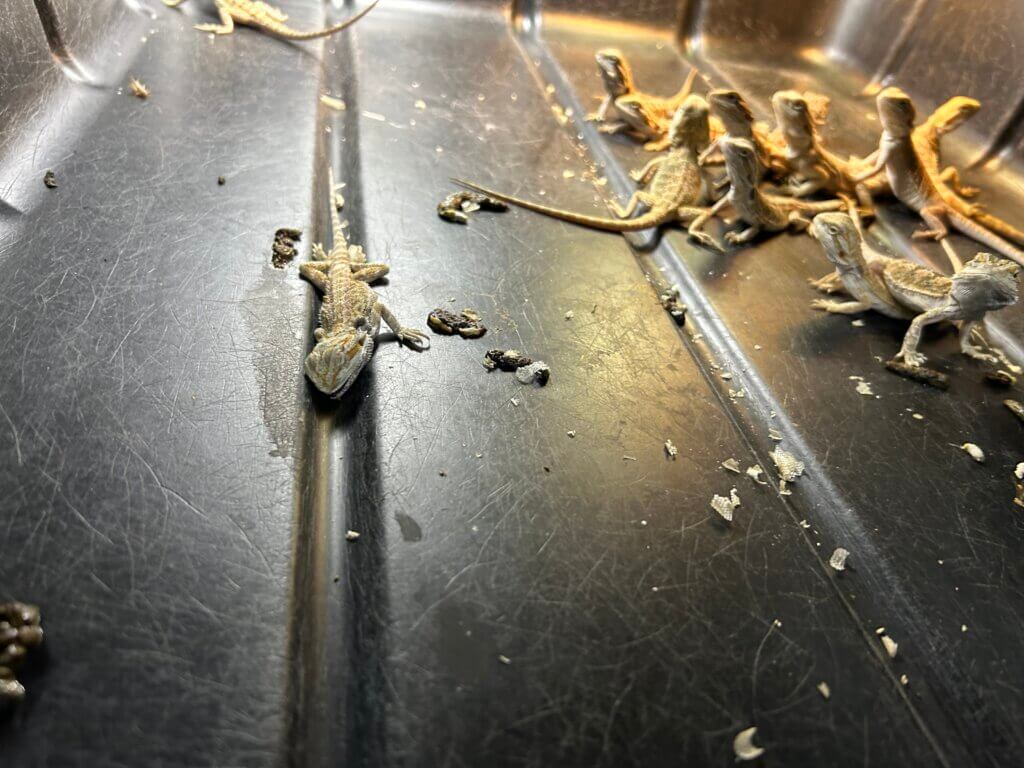
And if you’re planning to add a reptile or any other animal to your family, always adopt—never buy from a pet store or breeder.
If you think you have what it takes to conduct undercover investigations, we want to hear from you.
